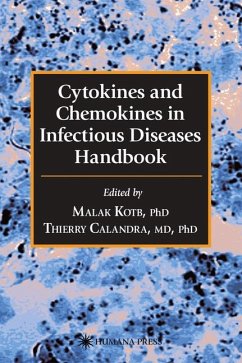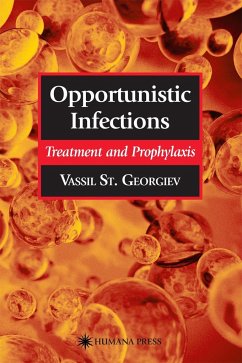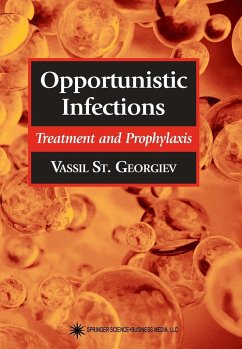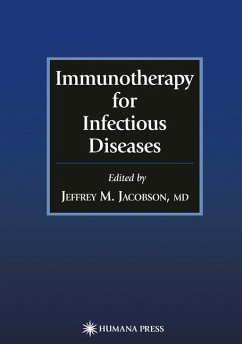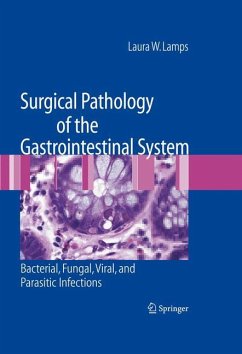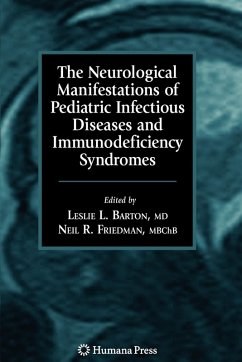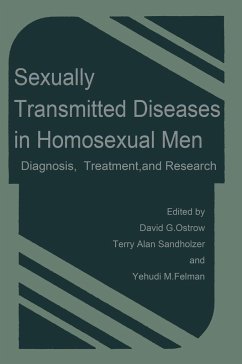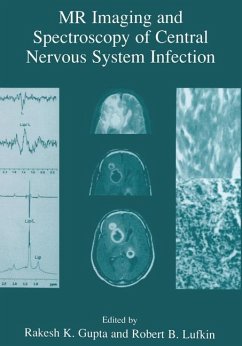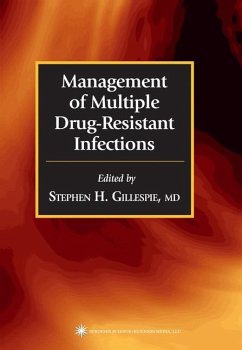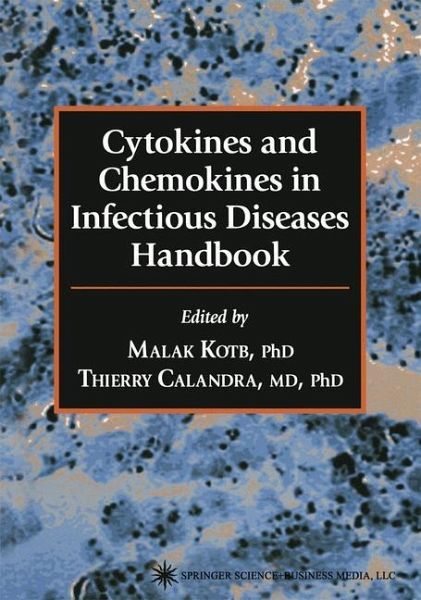
Cytokines and Chemokines in Infectious Diseases Handbook
Versandkostenfrei!
Versandfertig in 6-10 Tagen
113,99 €
inkl. MwSt.

PAYBACK Punkte
57 °P sammeln!
A comprehensive review of what is known about the role of cytokines and chemokines in a variety of human infectious diseases, including gram-negative and -positive infections, listeriosis, mycobacterial infections, lyme arthritis, pneumonia, fungal infections, HIV, leishmaniasis, and sepsis. The authors demonstrate the different cytokine and chemokine production profiles in response to a wide variety of pathogens and the importance of host genetic factors in determining the type and magnitude of responses to a given microorganism. They also critically evaluate the use of cytokines and anticyto...
A comprehensive review of what is known about the role of cytokines and chemokines in a variety of human infectious diseases, including gram-negative and -positive infections, listeriosis, mycobacterial infections, lyme arthritis, pneumonia, fungal infections, HIV, leishmaniasis, and sepsis. The authors demonstrate the different cytokine and chemokine production profiles in response to a wide variety of pathogens and the importance of host genetic factors in determining the type and magnitude of responses to a given microorganism. They also critically evaluate the use of cytokines and anticytokines in the treatment of infectious diseases and show how knowledge of cytokine pleiotropic effects, redundancy, and the complexity of the cytokine network has led to better design and better outcomes in cytokine-based therapies for specific infections. Recent years have witnessed rapid growth in new information on the crucial role played by cytokines and chemokines in human disease, as well as on the exciting possibilities they offer for developing novel therapies and for optimizing vaccine performance. In the Cytokines and Chemokines in Infectious Diseases Handbook, international leaders in the field comprehensively review what is known about the responses of cytokines and chemokines to a variety of human infectious diseases, including gram-negative and gram-positive infections, listeriosis, mycobacterial infections, lyme arthritis, pneumonia, fungal infections, HIV, leishmaniasis, and sepsis. The authors demonstrate the different cytokine and chemokine production profiles in response to a wide range of pathogens and the importance of host genetic factors in determining the type and magnitude of responses to a given micro-organism. They also critically evaluate the use of cytokines and anticytokines in the treatment of infectious diseases and show how knowledge of cytokine pleiotropic effects, redundancy, and the complexity of the cytokine network has led to better design and better outcomes in cytokine-based therapies for specific infections. The book also offers important information for those working in biodefense research through its illustration of the role of cytokines and chemokines in modulating host-pathogen interactions and vaccine responses.
Comprehensive and cutting-edge, the Cytokines and Chemokines in Infectious Diseases Handbook summarizes all the new scientific and clinical discoveries essential to understanding the importance of cytokines and chemokines in human infectious diseases, and demonstrates how best to utilize their unique properties in the design and development of effective new therapeutic agents.
Comprehensive and cutting-edge, the Cytokines and Chemokines in Infectious Diseases Handbook summarizes all the new scientific and clinical discoveries essential to understanding the importance of cytokines and chemokines in human infectious diseases, and demonstrates how best to utilize their unique properties in the design and development of effective new therapeutic agents.



